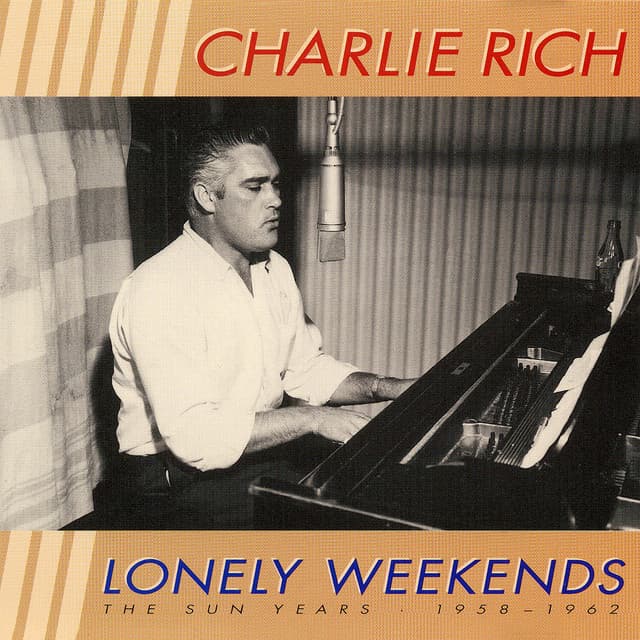
“Lonely Weekends”: A Timeless Melody of Heartbreak and Longing
Ah, Charlie Rich. Just the name itself conjures up a particular era, doesn’t it? A time when music had a different kind of soul, a raw honesty that spoke directly to the heart. And among his many gems, there’s one that still resonates with a profound sadness and beauty: “Lonely Weekends.” For those of us who remember its debut, it wasn’t just a song; it was a companion, a soundtrack to those quiet moments of reflection when the world seemed to slow down and the weight of unspoken feelings settled in. Released way back in 1960, a pivotal year that stood on the cusp of so much change, “Lonely Weekends” quickly found its way into the fabric of American popular music. It wasn’t a runaway chart-topper in the way some of the rock and roll anthems of the day were, but it carved out a respectable and lasting place for itself. On the Billboard Hot 100, it reached a peak position of No. 22. While that might not sound like a chart-burner by today’s standards, consider the landscape of music in 1960 – a vibrant, often chaotic mix of doo-wop, early rock and roll, and traditional pop. For a song with such a distinct country-pop crossover feel, reaching the Top 30 was a significant achievement, solidifying Charlie Rich‘s presence beyond the country charts and introducing his unique blend of piano-driven blues and heartfelt vocals to a broader audience.
But chart positions, while important for historical context, only tell a fraction of the story. The true magic of “Lonely Weekends” lies in its narrative, its evocative imagery, and the palpable emotion that Charlie Rich poured into every note. The song itself is a poignant lament from someone left behind, facing the stark reality of weekends stretching out before them, devoid of the person who once made them meaningful. It speaks to that universal human experience of profound loneliness, the kind that isn’t just about being alone, but about feeling utterly desolate in the absence of a cherished connection. The lyrics are simple yet incredibly powerful, painting a picture of empty days and restless nights, each one a stark reminder of what’s been lost. “Lonely weekends, lonely nights,” he sings, and you can practically feel the ache in your own chest. It’s not a dramatic outburst of grief, but a quiet, almost resigned sorrow, the kind that settles deep within and lingers.
The story behind “Lonely Weekends” is, in many ways, the story of Charlie Rich himself during that period. He was still finding his footing as a recording artist, experimenting with different sounds and trying to break through. He had already showcased his incredible piano prowess and a voice that could convey both raw power and tender vulnerability, but a definitive hit had eluded him. “Lonely Weekends” was one of those moments where all the elements converged. Penned by Charlie Rich himself and the renowned Bill Justis, the song reportedly came from a very personal place, reflecting the universal feelings of separation and longing that many experience. There’s a certain authenticity that permeates the track, suggesting that Rich wasn’t just performing a song; he was living its truth. His delivery is masterful, a testament to his innate ability to infuse every word with genuine emotion. The slight tremor in his voice, the melancholic piano chords that weave throughout the melody – these are not accidental touches. They are deliberate choices that amplify the song’s central theme of profound loneliness, making it feel less like a performance and more like a confessional.
Looking back, “Lonely Weekends” stands as a crucial early work in Charlie Rich‘s illustrious career, foreshadowing the immense success he would later achieve with classics like “Behind Closed Doors” and “The Most Beautiful Girl.” It demonstrated his versatility, his knack for bridging genres, and his unparalleled ability to connect with listeners on a deeply emotional level. For those of us who grew up with his music, “Lonely Weekends” is more than just an old song; it’s a memory, a feeling, a testament to the enduring power of a melody to capture the human condition. It reminds us of simpler times, perhaps, but also of the complex emotions that have always been a part of the human experience – the joy of connection, and the quiet, aching sorrow of its absence. And even now, all these years later, when those familiar piano chords drift through the air, they still have the power to transport us back, to evoke a sense of shared understanding, and to remind us that even in our loneliness, we are not truly alone.